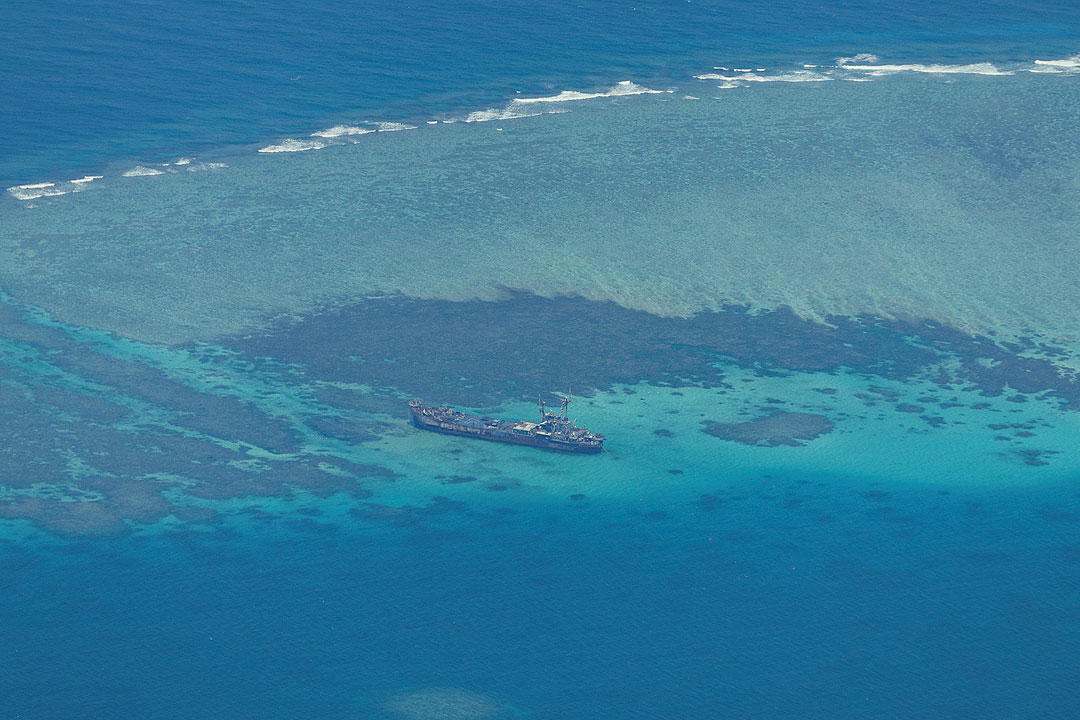Philippines likely weighing effects of joint resupply missions

IT WILL probably take time for the Philippines to hold resupply missions with its allies in the South China Sea so as to avoid stirring up tensions with China, according to geopolitical analysts.
The government of President Ferdinand R. Marcos, Jr. might also have to consider the sentiments of its Southeast Asian neighbors, they said.
It is likely “weighing the potential escalatory effect of asking US forces to help escort its resupply missions with the pressing need to get more construction materials to BRP Sierra Madre to ensure that it maintains control of Second Thomas Shoal,” Gregory B. Poling, director at Asia Maritime Transparency Initiative, said in an e-mail.
He said China is expected to escalate its rhetoric that it’s the Philippines that is provoking tensions in the waterway.
“But given the disingenuous nature of such accusations and given the radical ways Beijing upended the status quo over the last decade, I don’t think anyone in Manila or elsewhere should care too much.”
On Wednesday, Philippine military chief Romeo S. Brawner, Jr. said they are considering holding joint resupply missions within the country’s exclusive economic zone in the South China Sea.
The Philippines might also use bigger Philippine Navy ships for the resupply missions.
In August, Pentagon Press Secretary Patrick S. Ryder said the United States was ready to help the Philippines during its resupply missions.
“We will continue to work closely with the Philippines to support them as they request,” he said at that time, when a US Navy P-8 Poseidon maritime patrol and reconnaissance aircraft patrolled the area during a Philippine resupply mission to BRP Sierra Madre.
The Philippines on Monday filed a diplomatic protest against China and summoned its envoy in Manila after Chinese ships on Sunday collided with Philippine vessels on a resupply mission to Second Thomas Shoal.
Mr. Marcos met with security agencies to “discuss the latest violation by China in the West Philippine Sea,” the presidential palace said in a statement, referring to areas of the South China Sea within the country’s exclusive economic zone.
The incident was “being taken seriously at the highest level of government,” it said, adding that the Chinese Coast Guard’s “dangerous, illegal and reckless maneuvers” had damaged a Philippine vessel.
Mr. Poling said other Southeast Asian nations, especially those that have competing claims in the South China Sea, might fear a possible escalation of tensions in the region if the Philippines’ joint resupply missions with allies proceed, but “others such as Vietnam will quietly cheer such an effort.”
The Philippines, Vietnam, China, Brunei, Taiwan and Malaysia hold different and overlapping claims over features in the South China Sea.
‘CONCEITED NAVAL ACTIONS’
Vietnam conducted major expansion activities such as dredging and landfill work at most of its South China Sea outposts last year.
Hanoi claims the Paracel Islands, which are also claimed by both China and Taiwan. It also claims the entirety of the Spratly Islands — having occupied 25 features — as do China and Taiwan.
The Philippines, Malaysia and Brunei also claim parts of the Spratlys, whose northern section — called the Kalayaan Island Group — is occupied by the Philippines.
Chester B. Cabalza, founder of Manila-based International Development and Security Cooperation, noted that the US recently offered Vietnam a strategic partnership.
Indonesia, which has a conflict with China over the Natuna Islands in the South China Sea, has started a joint patrol among all ASEAN members. “As the de facto leader of the Association of Southeast Asian Nations (ASEAN), Jakarta sends a clear message to Beijing that it should respect the rules-based order.”
Malaysia and Brunei had criticized China’s new 10-dash line map, which covers some of their maritime claims.
“All of the ASEAN claimant-states are apprehensive of China’s duplicitous and conceited naval actions,” he said. “Washington offers a counterweight to balance China’s dominance.”
“It is likely that Southeast Asian claimants are worried about a possible escalation of conflict, but they quietly understand that the Philippines only does so for self-defense,” Joshua Bernard B. Espeña, who teaches foreign relations at the Polytechnic University of the Philippines, said in a Facebook Messenger chat.
There have been renewed calls for the Philippines to start joint patrols with its allies including the United States, Japan and Australia.
Don Mclain Gill, who teaches foreign relations at De La Salle University in Manila, said in any plans to involve allies in South China Sea missions, the Philippines must ensure that it’s not giving off signals that could “provoke the security architecture of the region at our expense.”
The parties should agree on the goals, implications and consequences of these activities in the long term, he said via Messenger chat. — Kyle Aristophere T. Atienza



